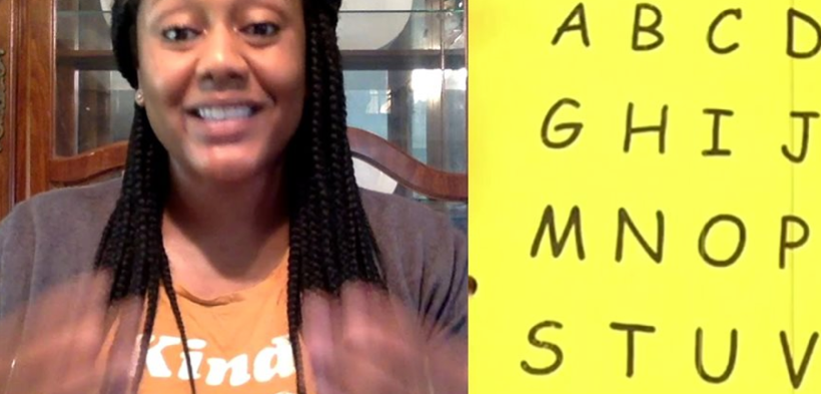Sign up for SmartBrief on Special Education to stay up-to-date on the latest in special education.
The COVID-19 quarantine has affected educational systems throughout the nation. Educators are getting creative during this new and stressful time. Districts are supplying instructional materials to parents, schools are creating online resources for students, and teachers — across grade levels — are holding classes on Zoom.
But even students, teachers and families adjust to this new norm, an important question looms: What about students with special needs? How are they — and their teachers — faring in this quarantine environment?
“Honestly, it is all a bit overwhelming,” says Breana Jamison, a special-education teacher in Columbus, Mississippi. A graduate from Mississippi State University, Jamison has been in special education for seven years — the last six spent teaching students in a self-contained setting.
She currently serves ten students, ages 5-10, who have significant special needs, including autism, developmental delays, intellectual disabilities and other health impairments. She also provides assistance to two students with behavior management and coping skills. She worries about what the COVID-19 pandemic and distance learning are doing to her students.
“My major concern right now is my students,” she says. “I have some that do not have the best home life. School was their safe place.”
The spring school closures disrupted the processes Jamison’s special education students go through to prepare for the next school year. Under normal circumstances, Jamison uses the time after spring break to help her students begin the transition to their new class. But when it became clear that schools would remain closed, she had to pivot.
Jamison created customized packets that addressed Individualized Education Program goals and began reaching out to her students using YouTube, text messages, phone conferences and Zoom meetings. Zoom, while efficient, presented a challenge.
“[M]ost Zoom meetings are in groups and we have to protect the confidentiality of each student,” she explains.
Jamison got around the privacy issues by holding weekly Zoom meetings with students — on Mondays, Tuesdays and Wednesday — to address their individual needs and IEP objectives. She covered sight words, letter and number recognition, color words, shapes, and simple addition and subtraction, with meetings running about 30 minutes each. She also conducted a group session for Calendar Math, which helped students learn how to communicate and participate.
“This is a great way to allow them opportunities to communicate and it keeps them in a routine,” she says.
Jamison also provided videos to parents giving them suggestions on different accommodations they can use at home with their children. In one video, she offers tips for schedules and setting up an online learning area. She recommends a quiet, consistent place that’s easily accessible but absent distractions, such as doors and televisions. She also suggests that parents begin the learning session, in this area, with a fun activity, such as coloring books and puzzles, to help students get into a work mindset.
“[Y]ou can have a toy that they like…in that area…[and] they can get ready for work like ‘[T]his is the area that we’re about to do our work and let me get my mind focused on work,” she explains in the video.
Jamison was relieved when Mississippi canceled its statewide testing requirements in the spring, calling it the best decision for students and teachers.
“State testing is an unnecessary stressor each year — there was always a pressure to show growth,” she says, adding that counselors often lacked time to meet with students because they were preparing for testing. Jameson says that the emphasis on testing skills has overshadowed students’ emotional and behavioral needs.
“This pandemic has shown us that the schools are needed for so much more than academics. Students are learning how to adapt, imagine, and socialize within the schools,” Jamison says. “I hope that after the pandemic, we — state and federal officials — all realize that testing is unnecessary.”
Tiffany Livingston, a Mississippi special education teacher, is a graduate student at The University of Southern Mississippi, currently studying Educational Leadership.
_________________________________________________________________________________
Like this article? Sign up for our Edtech news briefing to get news like this in your inbox, or check out all of SmartBrief’s education newsletters, covering career and technical education, educational leadership, math education and more.
More from SmartBrief Education:
- Free resources for educators during the coronavirus pandemic
- Distance learning while respecting students’ home lives
- 8 ways to make vocabulary instruction more effective
